Related Research Articles

Gotthold Ephraim Lessing was a German philosopher, dramatist, publicist and art critic, and a representative of the Enlightenment era. His plays and theoretical writings substantially influenced the development of German literature. He is widely considered by theatre historians to be the first dramaturg in his role at Abel Seyler's Hamburg National Theatre.
German studies, also often known as German philology, is the field of humanities that researches, documents and disseminates German language and literature in both its historic and present forms. Academic departments of German studies often include classes on German culture, German history, and German politics in addition to the language and literature component. Common German names for the field are Germanistik, Deutsche Philologie, and Deutsche Sprachwissenschaft und Literaturwissenschaft. In English, the terms Germanistics or Germanics are sometimes used, but the subject is more often referred to as German studies, German language and literature, or German philology.

The Gottfried Wilhelm Leibniz Prize, or Leibniz Prize, is awarded by the German Research Foundation to "exceptional scientists and academics for their outstanding achievements in the field of research". Since 1986, up to ten prizes have been awarded annually to individuals or research groups working at a research institution in Germany or at a German research institution abroad. It is considered the most important research award in Germany.

Weimar Classicism was a German literary and cultural movement, whose practitioners established a new humanism from the synthesis of ideas from Romanticism, Classicism, and the Age of Enlightenment. It was named after the city of Weimar, Germany, because the leading authors of Weimar Classicism lived there.

Leo Spitzer was an Austrian Romanist and Hispanist, philologist, and an influential and prolific literary critic. He was known for his emphasis on stylistics. Along with Erich Auerbach, Spitzer is widely recognized as one of the foundational figures of comparative literature.

Erich Schmidt was a German historian of literature.
Helmut de Boor was a German medievalist.
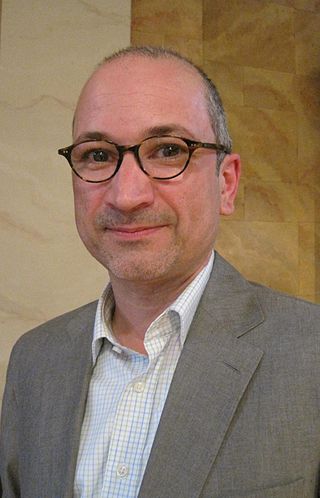
Steffen Martus is a German literary scholar and Professor of Modern German Literature at Humboldt University in Berlin.

Theodor Birt was a German classicist and novelist. He also used the name of the Humanist Beatus Rhenanus as a pseudonym.
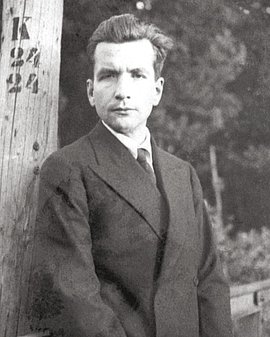
Werner Krauss was a German university professor.
Rudolf Gottfried Otto Harnack was a German literary historian, best known for his writings on Johann Wolfgang von Goethe.

Kurt Pinthus was a German author, journalist, critic and commentator.

Bekenntnis der Professoren an den Universitäten und Hochschulen zu Adolf Hitler und dem nationalsozialistischen Staat officially translated into English as the Vow of allegiance of the Professors of the German Universities and High-Schools to Adolf Hitler and the National Socialistic State was a document presented on 11 November 1933 at the Albert Hall in Leipzig. It had statements in German, English, Italian, and Spanish by selected German academics and included an appendix of signatories. The purge to remove academics and civil servants with Jewish ancestry began with a law being passed on 7 April 1933. This document was signed by those that remained in support of Nazi Germany.
Walther Rehm was a German literary scholar.
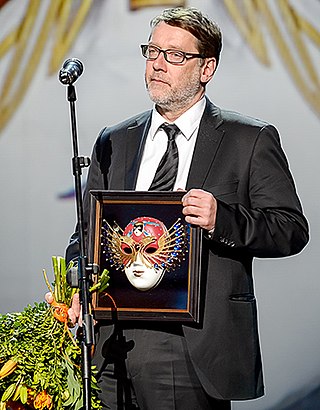
Michael Thalheimer is a German theatre director.
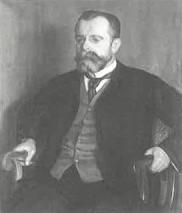
Erich Marcks was a German historian.
August Ferdinand Robert Petsch was a German researcher of Germanic culture and folklore.
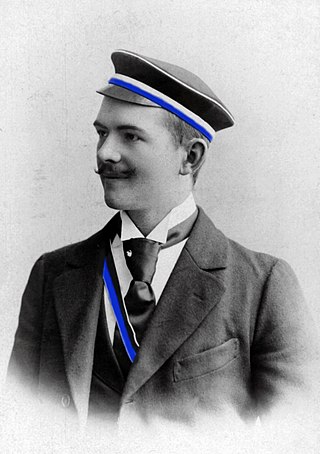
Julius Petersen was a German literary scholar and university professor, principally at the Friedrich Wilhelm University in Berlin. He did much to rediscover the works of Theodor Fontane for twentieth century readers. Petersen himself has been described as one of the most influential academics in the field of German studies during the interwar period, but after 1945 he disappeared from university reading lists. During the 1960s interest in his life and works resurfaced, though it has frequently been on account of evident contradictions in his attitude to National Socialism during the final decade of his own life that he has attracted the interest of more recent commentators.

The Freies Deutsches Hochstift is a literary association based in Frankfurt, Hesse, Germany. It is the owner of the Goethe House, the place where the playwright and poet Johann Wolfgang von Goethe was born and spent his early years, which it operates as a museum. The Hochstift also manages the Deutsches Romantik-Museum, a museum dedicated to German Romanticism which opened in 2021.
Ernst Beutler was a German literary historian and Goethe researcher who served as the director of the Freies Deutsches Hochstift literary society between 1925 and 1960.